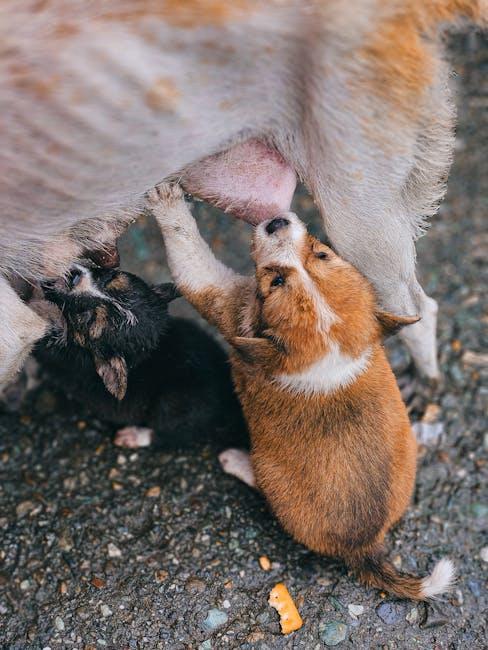Welcoming a new puppy into your home is an exciting and joyful experience, filled with cuddles, playtime, and plenty of wagging tails. As a new pet owner, one of the most important aspects of ensuring your furry friend grows up healthy and happy is understanding how to properly feed them. With so many options and opinions out there, it can feel overwhelming to figure out the best approach to nourishing your new companion. This article aims to provide you with clear, practical, and heartfelt guidance on puppy feeding, so you can feel confident in giving your little one the best start in life. Whether you’re a first-time pet parent or simply looking to refresh your knowledge, these tips will help you create a nurturing and balanced diet that supports your puppy’s growth and well-being.
Choosing the Right Nutritional Plan for Your Puppy
When it comes to nourishing your new furry friend, it’s essential to select a nutritional plan that caters to their growing needs. Puppies have different dietary requirements compared to adult dogs, and understanding these can make a world of difference in their development. Here are some key considerations to help you choose the right plan:
- Age-appropriate food: Opt for puppy-specific food that is rich in essential nutrients, vitamins, and minerals. These are crucial for supporting their rapid growth and high energy levels.
- High-quality protein: Ensure the diet includes high-quality protein sources like chicken, beef, or fish. This supports muscle development and overall health.
- Balanced nutrients: Look for a balanced mix of carbohydrates, fats, and proteins. Fats are important for brain development, while carbohydrates provide energy.
- Portion control: Puppies have small stomachs but high energy needs. Feed them small, frequent meals throughout the day to keep them energized and satisfied.
Consulting with your veterinarian can also provide personalized advice tailored to your puppy’s breed, size, and any specific health considerations. Remember, a well-fed puppy is a happy puppy, setting the foundation for a long and healthy life!

Establishing a Feeding Schedule That Suits Your Lifestyle
Creating a meal plan that seamlessly fits into your daily routine can be a rewarding experience for both you and your new furry friend. It’s important to recognize that puppies thrive on consistency, which means establishing a feeding schedule is crucial for their growth and well-being. Here’s how you can tailor a plan that suits your lifestyle while ensuring your puppy gets the nutrition they need:
- Morning Energy Boost: Start your puppy’s day with a nutritious breakfast. This meal should provide the energy needed for their morning playtime and activities. If you work from home, you might find it easier to incorporate a feeding session that coincides with your own breakfast.
- Midday Munchies: Depending on your schedule, a midday meal can be a great way to keep your puppy satisfied and happy. If you’re at work during the day, consider using an automatic feeder or enlisting the help of a pet sitter to maintain this crucial feeding.
- Evening Refuel: The last meal of the day should be timed to allow for digestion before bedtime. This helps prevent late-night bathroom trips and ensures your puppy sleeps comfortably through the night.
Flexibility is key. While it’s essential to maintain consistency, be open to adjusting meal times as needed. Life can be unpredictable, and sometimes plans change. The goal is to create a feeding schedule that is sustainable for the long term, benefiting both you and your puppy.

Understanding Portion Sizes and Growth Stages
Understanding the connection between portion sizes and your puppy’s growth stages is essential for their health and well-being. Puppies grow rapidly, and their nutritional needs change as they transition from newborns to young adults. Feeding them the right amount of food at each stage ensures they receive the energy and nutrients necessary for healthy development.
During the early weeks, puppies require smaller, more frequent meals. As they grow, you’ll notice their appetite increasing. Here’s a simple guideline to help you adjust their portions as they progress through their growth stages:
- 0-3 months: Feed small meals four times a day. Their tiny tummies need regular nourishment.
- 3-6 months: Transition to three meals a day as their digestive system matures.
- 6-12 months: Two meals a day should suffice, as they approach their adult size.
Always consider your puppy’s breed, activity level, and individual needs when determining portion sizes. Consulting with a veterinarian can provide personalized guidance, ensuring your furry friend grows into a happy, healthy adult.
















